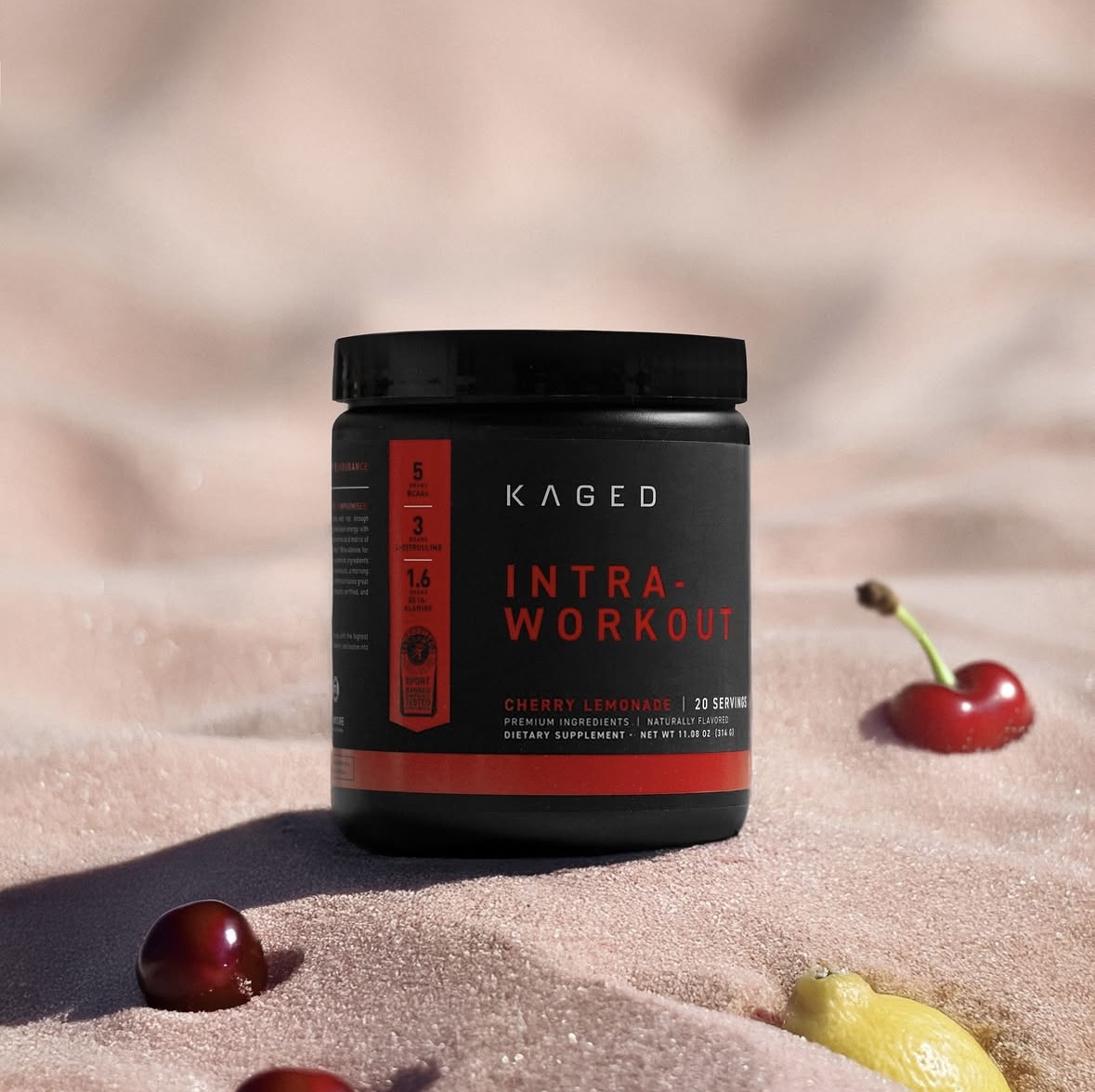Table Of Content
Discover the top affiliate influencer software —from Influencer Hero and Aspire to CreatorIQ and more.
%20(1).jpg)

Table Of Content
Affiliate influencer marketing has proven to be one of the most effective ways for brands to expand their reach and drive conversions. However, with an ever-growing number of platforms available, choosing the right affiliate influencer software to manage and optimize your campaigns can be overwhelming.
Whether you’re a small business just starting out or an enterprise-level organization looking to scale, the right software can help streamline your influencer and affiliate campaigns, optimize ROI, and provide actionable insights into campaign performance.
These platforms offer powerful features such as influencer discovery, automated campaign management, real-time performance tracking, and seamless eCommerce integrations, all designed to make your affiliate marketing efforts more efficient and impactful. From robust tools to flexible solutions, this article highlights the top 10 affiliate influencer marketing software platforms to consider in 2025.

Best For: Mid-to-large-sized brands seeking an all-in-one influencer marketing platform with strong analytics, campaign management, and eCommerce integrations.
Pricing: Upfluence offers customized pricing based on the size of the business and the features required. Research suggests pricing typically:
Reviews: 4.5/5 (G2)

Best For: Large enterprises looking for an extensive network of affiliates and influencers, particularly in the retail and eCommerce industries.
Pricing: CJ Affiliate uses a performance-based pricing model where costs are based on commission per sale. Plans are negotiable based on volume and specific needs.
Reviews: 4.3 / 5.0 (G2)
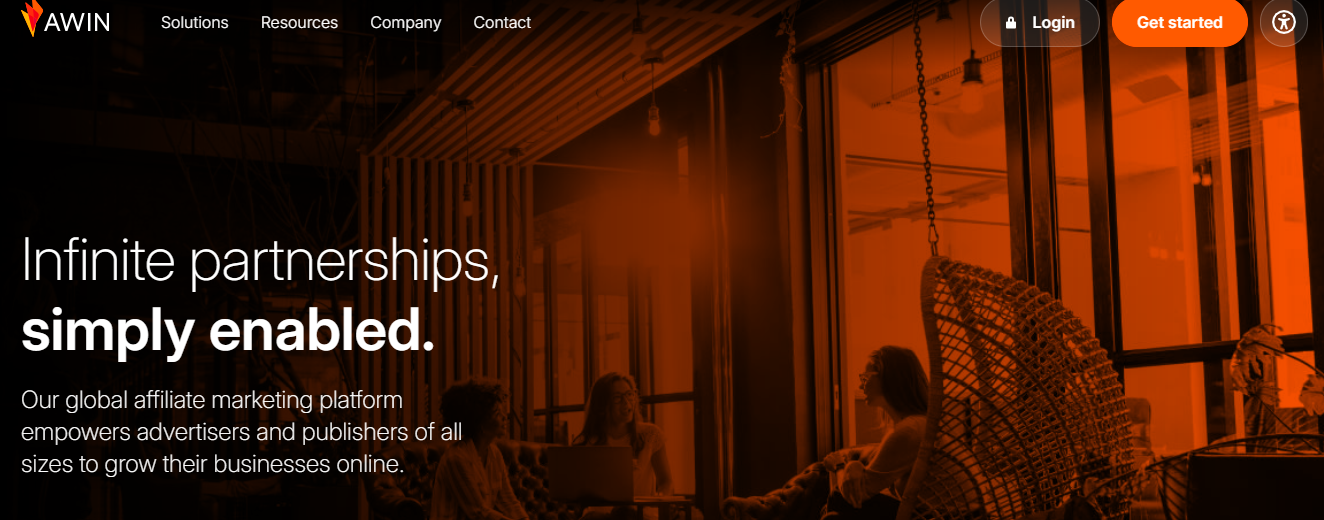
Best For: Businesses of all sizes looking for a flexible affiliate marketing platform with global reach and powerful tracking tools.
Pricing: Awin offers performance-based pricing, with costs depending on the volume of traffic and sales. Initial setup fees may apply.
Reviews: 4.4 / 5.0 (G2)
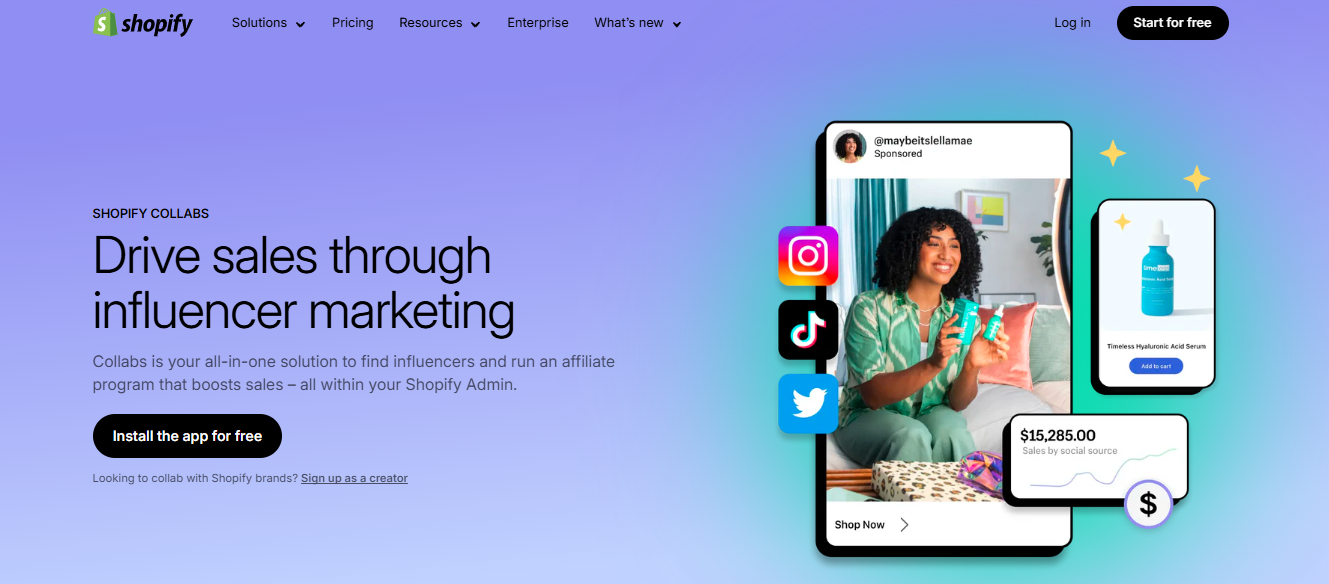
Best For: Shopify merchants seeking to connect with influencers and run affiliate campaigns directly through the platform.
Pricing: Pricing is based on the Shopify subscription plan, with no additional fees for Shopify Collabs.
Reviews: 4.5 / 5.0 (G2)

Best For: Large enterprises and agencies managing complex influencer marketing programs that require advanced analytics, global workflows, and seamless cross-platform integrations.
Pricing: CreatorIQ offers customized pricing based on organizational needs. Research indicates that plans typically begin at $35,000–$36,000 per year (around $2,350/month) with an annual contract. The platform follows a per-user, enterprise-tier model with no monthly or flexible options. Free trials may be available upon request after a demo.
Reviews: 4.6 / 5.0 (G2)
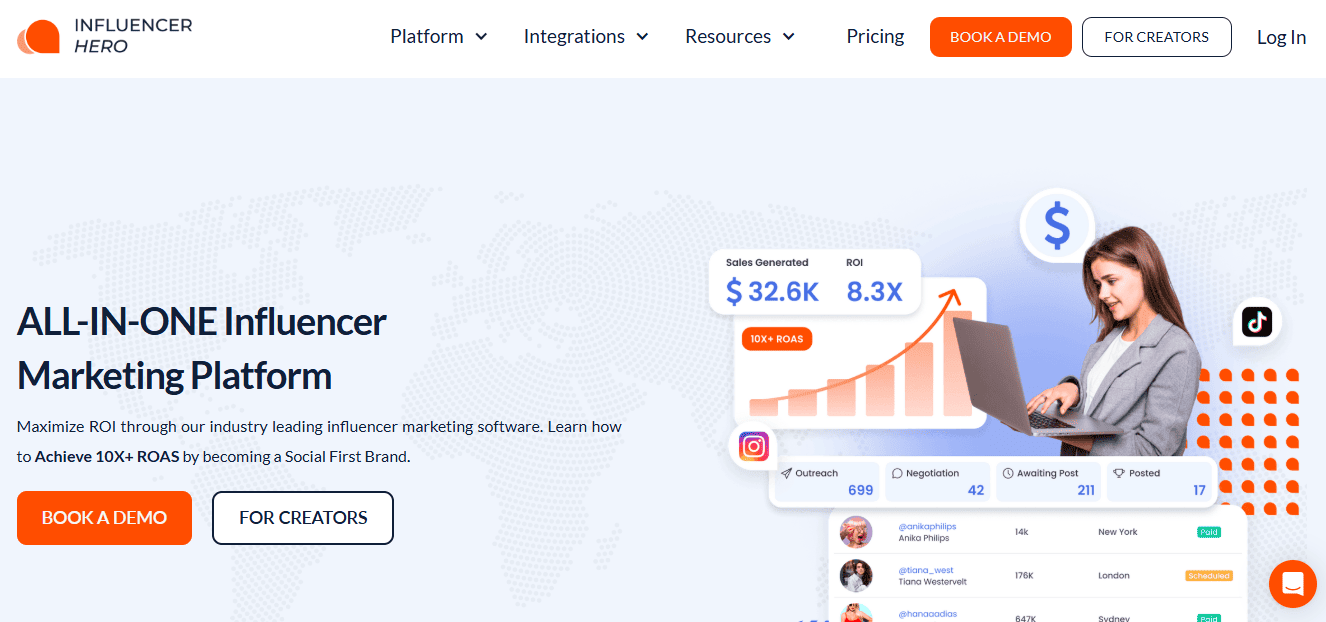
Best For: Brands and agencies of all sizes that want an all-in-one influencer marketing platform with tools for discovery, outreach, campaign management, affiliate tracking, and detailed analytics—all in a single dashboard.
Pricing: Influencer Hero offers flexible pricing plans to accommodate growing brands. All plans include core features and can scale as the influencer program grows.
Reviews: 5.0 / 5.0 (Capterra)

Best For: Mid-to-large-sized brands looking for an influencer marketing platform with advanced analytics, influencer search, and performance measurement.
Pricing: There are different plans and options.
Reviews: 4.7/5 (G2)
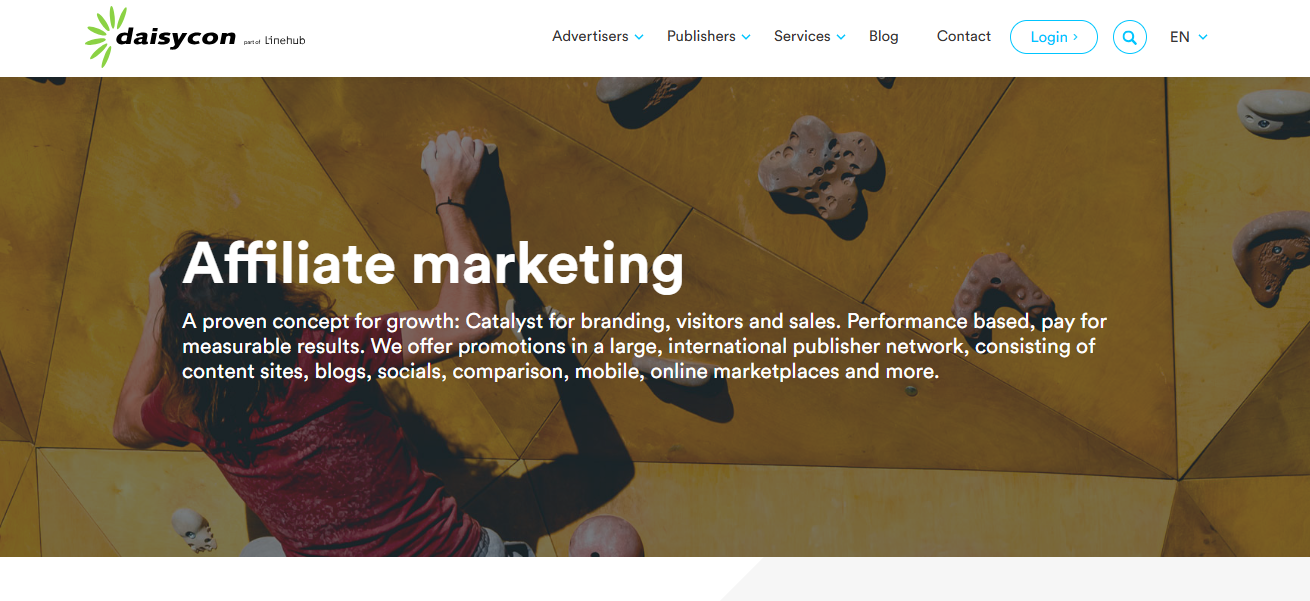
Best For: Small businesses and startups looking for an affordable, easy-to-use influencer and affiliate marketing solution.
Pricing: Daisy offers competitive pricing, starting at $99/month for basic features, with additional costs based on the number of influencers and the scale of campaigns.
Reviews: 4.4 / 5.0 (G2)

Best For: Social commerce businesses and small eCommerce brands looking to leverage influencer marketing for affiliate-driven sales.
Pricing: ShopMy offers a low-cost solution starting at $29/month. Pricing increases based on the number of users and the scale of the campaigns.
Reviews: 4.3 / 5.0 (G2)

Best For: Brands seeking to connect with micro-influencers and niche audiences for highly targeted campaigns.
Pricing: Afluencer offers flexible pricing with plans starting at $99/month. Custom pricing is available for larger campaigns or enterprise-level needs.
Reviews: 4.5 / 5.0 (G2)
Choosing the right affiliate influencer software is key to optimizing your marketing efforts and maximizing ROI. For larger enterprises, Upfluence and CreatorIQ offer advanced features and global integrations, while smaller businesses can benefit from more affordable solutions like ShopMy and Daisy.
For brands in between, Modash and Afluencer offer powerful tools for influencer discovery and performance tracking at a more accessible price point. Meanwhile, CJ Affiliate and Awin excel with extensive networks and real-time tracking.
No matter your business size, the right platform will help you manage influencer partnerships, track performance, and scale campaigns effectively in 2025.
Affiliate influencer marketing software helps brands discover and collaborate with influencers to promote their products or services in exchange for affiliate commissions. These platforms provide tools for influencer discovery, campaign management, tracking performance, and managing payments. They enable brands to automate outreach, track sales and conversions, and optimize ROI from influencer partnerships.
When selecting affiliate influencer software, consider key factors like ease of use, pricing, integrations with eCommerce platforms, and the size of the influencer database. Additionally, look for platforms that offer real-time analytics, fraud detection tools, and scalable pricing models that fit your business's needs. It’s important to choose a platform that aligns with your goals, whether you're focusing on small-scale campaigns or global influencer networks.
Yes, most affiliate influencer software platforms offer real-time tracking of sales and conversions. They provide insights into how influencer campaigns are performing, including metrics such as reach, engagement, and ROI. Many platforms also offer customizable reporting tools to track affiliate sales directly, making it easier to measure the success of each partnership.
Yes, several affiliate influencer software platforms cater specifically to small businesses with affordable pricing and user-friendly interfaces. Tools like Daisy and ShopMy are great options for startups and small brands looking to scale their marketing efforts without breaking the bank. These platforms offer simpler features and flexible pricing to suit businesses just getting started with influencer marketing.
Yes, many affiliate influencer software platforms, like Influencer Hero and CreatorIQ, offer integrated tools for managing influencer contracts and payments. These platforms allow brands to handle everything from outreach and content approvals to managing affiliate payouts, streamlining the entire workflow for both brands and influencers.
